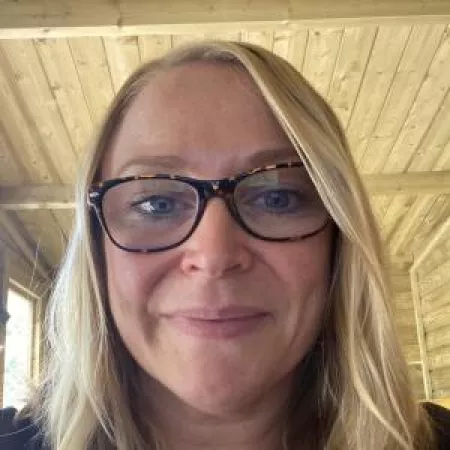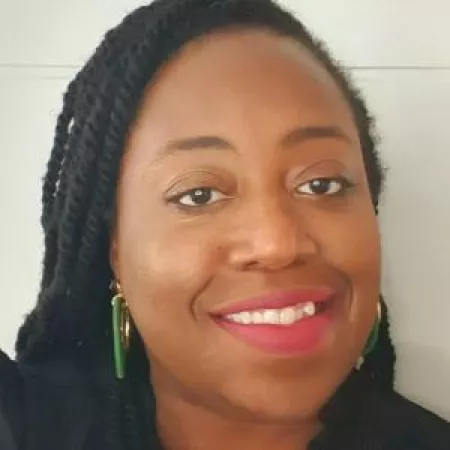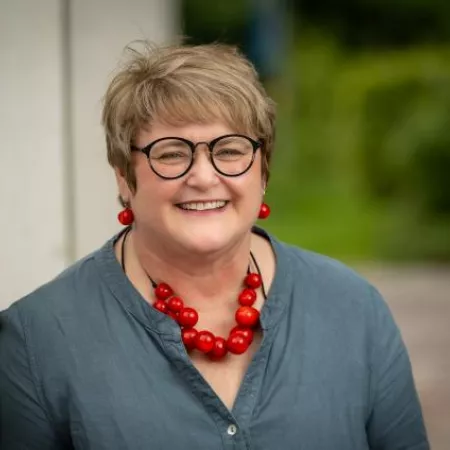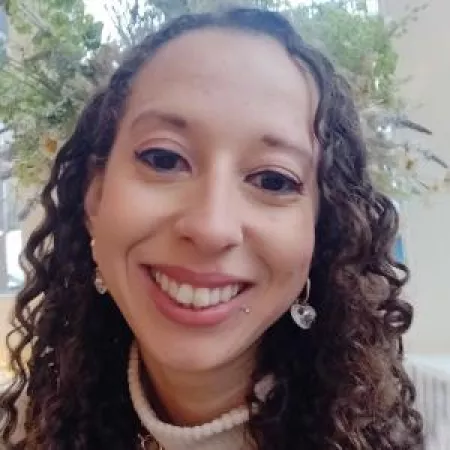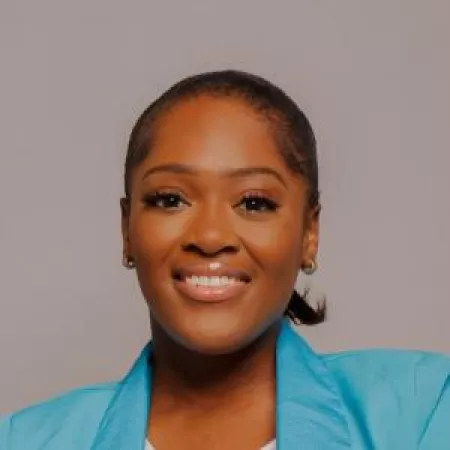Own your superpower!
In celebration of Occupational Therapy Week (OT Week), and we’ve caught up with five passionate occupational therapists, from a diverse range of settings, who share how they spark their own conversations around occupations, look at why it can be a difficult task, and offer peer-to-peer advice for overcoming any barriers and owning your ‘superpower’ as an occupational therapist.
When it comes to every occupational therapist talking consistently about occupations, in the context of occupational therapy, it’s all about what they are and why they matter, so that everyone you work with has a better understanding of our impact and value. But we know that’s not always easy.
Jon Fisher, a Highly Specialist Occupational Therapist in the Aneurin Bevan Specialist Drug and Alcohol Service, says: ‘When I introduce the concept of occupation, I find myself initially starting out quite general, such as mentioning all the things that we want to, need to, or are expected to do.
‘I might give some examples that can be matched to the person and the context that we share. In my current role, I refer to using alcohol and other drugs as an occupation, or the things that someone used to do before using substances took over.’
Aiysha Ahmed, Clinical Specialist Occupational Therapist in the Acute Frailty Therapy Team at Barking, Havering and Redbridge University Hospital NHS Trust, goes a step further, and says that she’s always very clear that occupation is ‘not just about your job’.
She adds that when talking to others, she makes sure they understand it’s about everything they do, that matters to them, throughout the whole day; that ‘anything and everything you do can be an occupation’ and that ‘this can include, but not be limited to, getting up and about, taking care of yourself, driving, eating, hobbies and even sleeping’.
As a children’s occupational therapist in The Children’s Development Service at Sussex Community NHS Foundation Trust, Katy Twine takes a similar approach.
She says: ‘I work with children, so I often explain occupations as the activities you do throughout the day, from the moment you wake up to when you go to bed… the things you have to do in the day, for example writing at school, getting dressed, brushing your teeth, and the things you enjoy doing in your day, such as going to the park, meeting up with your friends and your hobbies.’
Kay Orr has been practising in mental health settings for over 20 years, and she says that she finds it useful to break occupations down into productivity, leisure and self-care with the people she works with.
‘I sometimes ask if they have met an occupational therapist before and, if so, what their experience of it is and explain we all work in different settings.’
Jon believes it can be difficult to talk about ‘because occupation applies to all the things that we do that convey meaning to us’. In other words: ’It's vast!’
He adds: ‘There's still that little part of me sometimes that worries people won't get it and I won’t be seen as a legitimate practitioner; just someone who does fun superficial activities. I'm not always sure people really appreciate the depth and importance of occupation in their lives and how it brings us together, motivates us and makes us who we are.’
Katy Twine agrees and adds: Occupation covers such a lot and often it can be overwhelming when we really think of how many occupations we engage in every day.’
While Aiysha reflects: ‘There is limited understanding of occupation outside of its definition as a job role, or in reference to occupational health. Often occupation is discussed under a different heading and people don’t realise that what they are referring to is, in fact, an occupation.
‘This results in creating an internal barrier where occupational therapists might feel they don’t want to challenge this. We will use other terms to describe occupation, depending on the setting we work in and the team’s use of language.’
So what can we all do, during OT Week and beyond, to ensure everyone understands what occupations are and why they matter? The first step is to reflect on, identify and then challenge the barriers and use all the resources we’ve produced to help you.
These include narratives and evidence, an animation you can use in presentations, share on social media and add to webpages, posters to display in your workplace, graphics to share on social media or insert into documents, and banners to use in your email signatures. There’s also a calendar of suggested activities to do throughout November.
‘Sometimes, you're starting from scratch,’ Jon says. ‘People's understanding can be restricted to a narrow bunch of daily living skills, which is fundamental, but it’s about everything.
‘A lot of people make a connection with the visible things - equipment or adaptations. The “psychosocial” aspects of what we do and why are harder to grasp, because that intrinsic change is different for each person.
‘Someone might not appreciate how using a leisure occupation to restore routine and confidence is a step along the way to restoring participation in a vocation.’
To overcome this, Jon says that he always tries to gain a specific example from the person he is talking to, or he asks them to simply think about what's important to them. ‘What things do they do that give them a sense of purpose or belonging in the world and why do they do them?’
He explains: ‘I think examples are good. If the person you're talking to can make that personal connection, that's even better. My current team had never had an occupational therapist in the multidisciplinary team before, so I was starting from cold.
‘I knew I'd have to think about the messaging to help them develop their understanding. I was consistent and used specific messages during meetings. We are taught that occupational therapy is a complex intervention, which it is. But RCOT’s Professional Adviser – Wales, Dai Davies, recently described it as “complex simplicity” and that really stuck with me.
‘Does everyone need to know about all the wonderful occupational therapy concepts and science that help us do our roles? Not really. They just need to know that we use the occupations that are important to people to help restore or rebalance aspects of their lifestyle.’
It’s a strong message. So, what’s stopping us all from talking about occupations with similar confidence? Time as a limiting factor was a common theme.
‘I work in an acute inpatient setting,’ says Aiysha, ‘often in an assessment area, where patients are being assessed and discharged on the same day. It can feel time consuming to explain it or set time aside to educate our peers on the definition and importance of occupations outside of activities of daily living assessments in the acute setting.’
Kay ads that within mental health services people can be very unwell when you meet them as an occupational therapist, so it’s important to use simple sentences. She might say ‘it’s about supporting you to do what’s important to you again, for example getting dressed’. Or she might ask, ‘do you like walking or going outside again?’
She adds: ‘Then it’s about informally assessing what they are struggling with, for example asking which activities, using an assessment tool. It’s time consuming.’
Aiysha adds that another barrier is we don’t always ‘give ourselves permission to challenge and educate our multidisciplinary colleagues’ and that the evolution of joint working and integrated therapies can sometimes lead to ‘role blurring’.
Having identified our own barriers, how do we build the confidence to talk about and explain occupation, when different groups of people have different understanding of and misconceptions about the word?
‘For me, personally, I have found that I am increasingly confident in talking more openly and directly about occupation as my career has gone on,’ reflects Jon. ‘I've found it much more liberating to be able to use my preferred language… I've been able to develop my confidence and their understanding over time.’
Aiysha adds: ‘Particularly within the multidisciplinary team, there is very limited understanding of our role [but] in my experience, it is often the newest occupational therapists, fresh out of university, who drive new ideas and innovation and remind us to focus on occupation-focused assessments and interventions.
‘I think experience can often be to our detriment, as the pressures of the NHS, the pandemic and budget cuts take us away from our occupational therapy roots.’
Ruby Sparkes, Occupational Therapist at NHS Tayside, supports this sentiment, saying: ‘I have noticed a lot of students appear to be able to centre occupation and explain what it is more confidently than many people who have been in the profession for a long time.
‘However, it appears (understandably) that students tend not to be as confident in speaking out about this in multidisciplinary settings.’
‘My family still think I work in occupational health!’ Jon exclaims. ‘Occupation is referred to a lot in substance use guidelines and recommendations and it's usually specifically towards work and employment. That's great, but I wonder, if that definition was wider for all the people writing these, would more people benefit in their recovery journeys and beyond?’
Occupations are at the core of our profession, and as part of OT Week, RCOT is calling on you to ‘own your superpower’ of occupation. But how do we start to do that?
Ruby exclaims: ‘Use the word more! We need to call ourselves occupational therapists, rather than OTs. Be brave enough to correct people who misunderstand our role within the multidisciplinary team. We need to talk about it in day-to-day life as well, so it becomes a more commonly used and understood term outside of health and social care settings.’
For Aiysha, education is the key. She says: ‘[We need to start] removing internal barriers and giving ourselves the permission to speak more confidently about occupation and its importance for all the people we work with.
‘We need to ensure we include it in our terminology from the point of our initial assessment, considering it in the context of our assessment and intervention planning. We need to allow space within our team meetings and forums to discuss barriers and actively brainstorm ways to promote occupation within our everyday practice.
‘We should feel proud to wear it as a badge and an integral part of our role, rather than an afterthought. It should be within our assessments and our written documentation as much as possible, to ensure we keep the focus on occupations and how we are enabling our patients to engage in them.’
Words Tracey Samuels, OTnews Editor, in conversation with Jon Fisher, Aiysha Ahmed, Kay Orr, Ruby Sparkes and Katy Twine.
